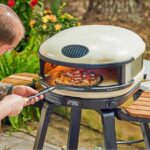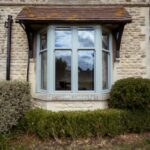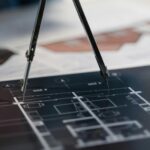Plumbing problems are one of the most common issues faced by homeowners. From leaky faucets to burst pipes, plumbing issues can be a major inconvenience and cause costly damage to your home. However, with a few simple preventive measures, you can avoid many plumbing problems altogether.
This article will discuss ten tips for preventing plumbing problems and keeping your plumbing system in good working order.
1. Keep Drains Clear
Keeping your drains clear is vital in preventing unexpected plumbing problems. To avoid blocked drains, you should avoid pouring grease or oil down the drain and consider using a strainer to catch hair and other debris. Even using harsh chemical drain cleaners should not be too frequent. They can cause damage to your pipes and lead to more severe plumbing problems down the road.
As a preventative measure, you can pour boiling water down your drains once a week to help clear out any buildup. Add this task to your regular plumbing maintenance, and it will help your plumbing system’s health.
However, if the clog has happened already, try using a plunger or a natural drain cleaner made from vinegar and baking soda. This should solve minor clogs, but if it does not, seek your plumber — the problem must lie elsewhere.
2. Watch What You Flush
Flushing the wrong items down the toilet can cause clogs and damage your plumbing system. To prevent plumbing problems, ensure everyone in your household is aware of what can and cannot go down the toilet.
Only human waste and toilet paper belong in a toilet, and items such as feminine hygiene products, cotton swabs, and dental floss should go in the trash.
But if you still experience a clogged toilet, try using a plunger instead of chemical drain cleaners. If the problem persists even after that, it is best to leave it to a professional.
3. Check For Leaks
Checking for leaks is an important part of preventing plumbing problems. Even a small leak can waste a lot of water and lead to costly damage over time.
So to prevent leaks, you must inspect your plumbing system regularly and fix any leaks as soon as you notice them. Check for signs of water damage on ceilings, walls, and floors, and check your water meter regularly to detect any hidden leaks. For those puzzled by a high water bill yet unable to find visible leaks, consulting a high water bill, no leak checklist can be an invaluable resource, guiding you through steps to identify less obvious causes of increased water usage.
Upon noticing a leak, turn off the water supply to that fixture or area and contact a professional for repair assistance.
4. Insulate Pipes
Insulating your pipes is a simple and effective way to prevent plumbing problems caused by freezing temperatures. When pipes are exposed to freezing temperatures, the water inside can freeze and expand, causing the pipes to burst and leading to costly water damage.
To prevent this, insulate your pipes with foam insulation sleeves, especially in areas such as basements, crawl spaces, and attics. It will help to keep the water in your pipes from freezing and protect your plumbing system from damage.
If you are unsure how to insulate your pipes properly, contact a professional for help.
5. Maintain Your Water Heater
Maintaining your water heater is integral to preventing plumbing problems and ensuring that you have hot water when needed. To maintain your water heater, flush it once a year to remove sediment buildup and ensure it works efficiently.
Further, you should also check the temperature and pressure relief valve regularly to ensure it functions properly. Inspect the water heater for leaks and rust, and consider replacing it if it is over 10 years old.
If you are unsure how to maintain your water heater, contact a professional plumber for hot water installation in Melbourne.
6. Avoid Chemical Drain Cleaners
While chemical drain cleaners can be tempting to use when faced with a clogged drain, they can do more harm than good.
These harsh chemicals can damage pipes and cause corrosion, leading to more serious plumbing problems down the road. Instead, use a plunger or a natural drain cleaner made from vinegar and baking soda.
7. Do Not Overload Your Garbage Disposal
Garbage disposals are a convenient way to dispose of food waste, but they can quickly become clogged or damaged if you overload them.
Thus, you must avoid putting fibrous or starchy foods down the disposal, such as celery, potato peels, and pasta. And always run plenty of water while the disposal is in use to help flush out any debris.
8. Be Careful With Your Plumbing Fixtures
Plumbing fixtures such as faucets and showerheads are designed to last many years, but they can get damaged if not used properly.
Firstly, do not overtighten faucets or handles, as this can cause damage to the fixtures and the plumbing system. Then avoid using harsh cleaning products on your fixtures, as this can cause corrosion and other damage. Basic care such as this can help you extend your plumbing fixtures’ life for many more years.
9. Know Where Your Shutoff Valves Are
In a plumbing emergency, knowing where your shutoff valves are is crucial. Shutoff valves control the flow of water to individual fixtures or areas of your home. They allow you to quickly stop the water flow if a pipe burst or a fixture leaks.
So, make sure you know the location of the main shutoff valve for your home and the location of shutoff valves for individual fixtures such as toilets, sinks, and washing machines. If you are unsure, contact a professional plumber for assistance.
10. Hire A Professional Plumber
Finally, one of the best ways to prevent plumbing problems is to hire a professional plumber to inspect your system regularly.
A plumber can identify potential issues before they become severe and provide advice on maintaining your plumbing system properly. They can also help with repairs and installations, ensuring everything is done correctly and safely.
Final Thoughts
Preventing plumbing problems is all about taking a proactive approach and being mindful of what you put down your drains and toilets and how you use your plumbing fixtures.
Following the tips outlined in this article, you can avoid many common plumbing issues and keep your system in good working order. And if you experience a plumbing emergency or need help with repairs or installations, do not hesitate to call a professional plumber who can provide the expertise and assistance you need.
NLK Plumbing is one of our best recommendations for all things plumbing. They have been in this industry for decades and provide the best service. Check out their website and see if they fit your needs.







